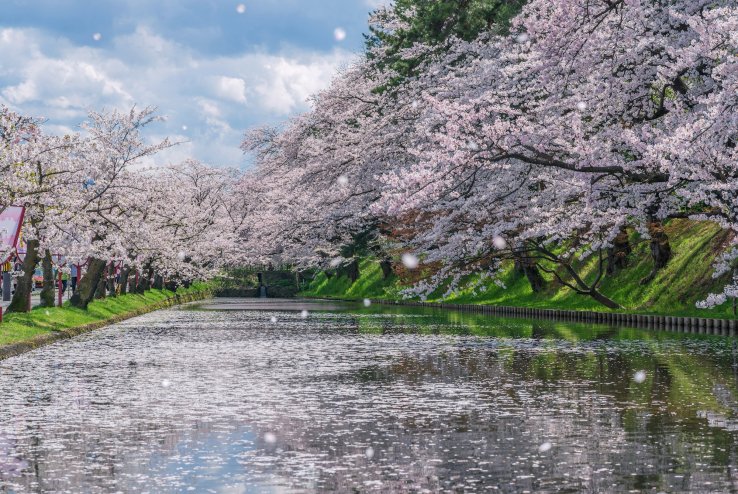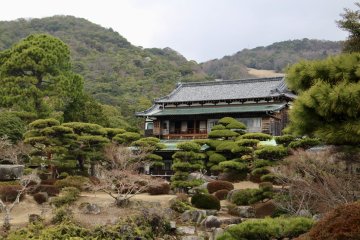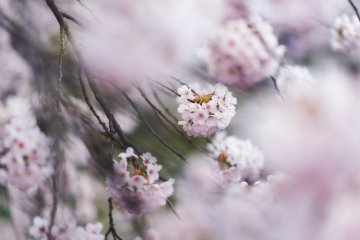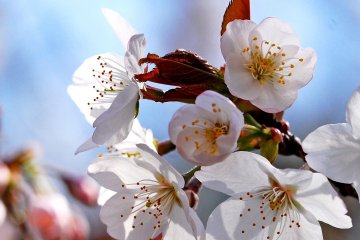Japan's cherry blossom season is famous around the world, but perhaps less is understood about the sheer variety of blossom and where each type can be seen. Read on to learn about the different kinds of cherry blossom you can see in Japan.
Varieties of Cherry Blossom
Somei Yoshino

One of the most widespread and recognised varieties, with its pale white/pink flower. Some of the oldest trees are native to Hirosaki, Aomori. The Nakameguro canal is also a popular destination for Tokyoites, with 800 or so somei-yoshino trees stretching for about 4 km along both sides of Meguro River.
Yamazakura

A wild variety which grows commonly around Japan, Yamazakura is known for its light pink hue and 5 small petals. It can live for a very long time.
Shidazakura

This weeping cherry tree is a great sight to behold and are typically hundreds of years old. Known for their unique drooping branches, Shidarezakura typically blooms from late March.
Kawazuzakura

Kawazu cherry blossoms begin blooming earlier, last longer, and are graced with a vibrant pink hue – visit the Kawazu Sakura Festival in Izu for the best experience!
Yaezakura

Large blossoms with intricate and multiple layers of petals make the yaezakura cherry blossom a unique spectacle, which begin to bloom from about mid-April each year. The Japan Mint branch in Hiroshima is one such place to witness them.
Edo-Higanzakura

Pale, small pink blossoms known for their dignified beauty. The Edo-higan trees bloom around the spring equinox on March 21st, and have a long life span up to 2,000 years. See them at Akasaka's Toyokawa Inari Temple in Tokyo.
Shibazakura

Literally 'lawn cherry blossom', the Moss Pink/Phlox is not technically a cherry blossom variety but blooms around April/May and has a similar appearance to cherry blossom. Gunma's Misato Shiba-zakura Park comes alive each Spring when the Shibazakura are in bloom.
Kanhizakura

More prominent in tropical climates such as Okinawa, the Kanhizakura cherry tree blooms fairly early with a distinctive dark pink/scarlet red bell-shaped flower.











